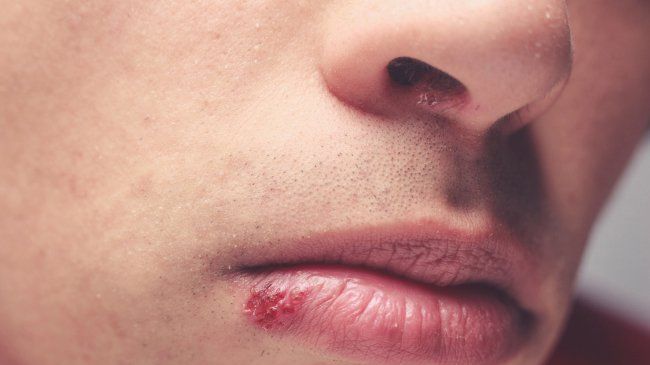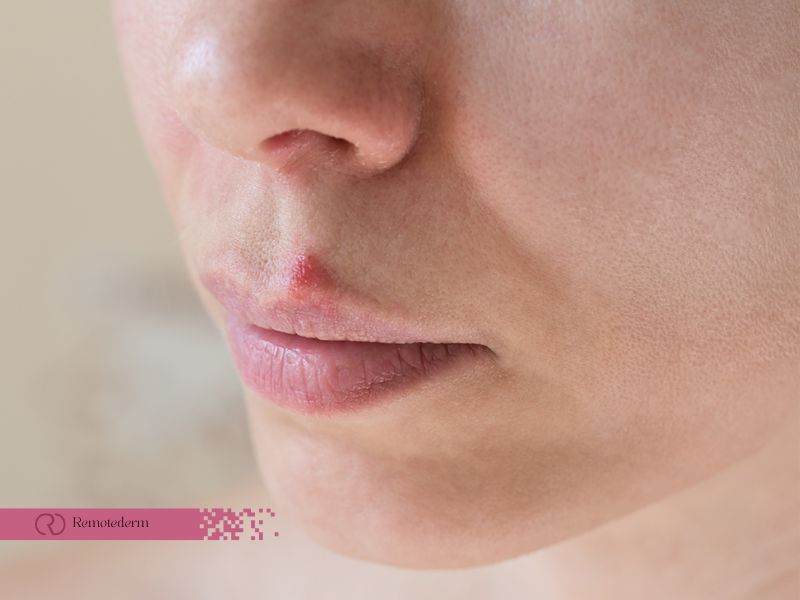cold sore comprehensive guide
Imagine a life free from the discomfort and frustration of cold sores. Those painful blisters that seem to appear at the most inconvenient times can be more than just a cosmetic issue – they can also take a toll on your self-confidence and overall well-being. But fear not! In this comprehensive guide, we will delve into the world of cold sores, exploring their causes, prevention strategies, and effective management techniques. Whether you’re seeking to prevent future outbreaks or looking for ways to alleviate the symptoms of an ongoing episode, this article has got you covered. So, let’s embark on a journey to unlock the secrets of cold sores and take control of your oral health and well-being. Get ready to say goodbye to those pesky blisters and hello to a life free from their discomfort!
What Are Cold Sores?
Cold sores, also known as fever blisters, are small, painful blisters that generally occur on or around the lips, mouth, or nose. They are caused by the herpes simplex virus (HSV), specifically the HSV-1 type. Cold sores are very contagious and can be spread through direct contact with blister fluid or by sharing personal objects such as cutlery, towels, or lip balms.

Cold Sore Stages
Cold sores usually progress in stages, each with its own set of characteristics:
- Tingling or Itching: At this point, you may experience tingling or itching at the place where the cold sore will develop.
- Blisters: They emerge as little fluid-filled blisters. These blisters can be painful, and they may merge to form a larger blister.
- Ulceration occurs when blisters rupture, spilling fluid and leaving a shallow ulcer or sore. This is the most painful stage, which is generally accompanied by redness and inflammation.
- Scabbing: A yellow or brown scab forms over the ulcer as it begins to heal. It’s important to avoid picking at the scab to prevent scarring and secondary infections.
- Healing: The scab gradually falls off, revealing new skin underneath. The healing process is usually completed within 10-14 days.
Cold Sore Causes
Understanding the causes of cold sores can help you take preventive measures and manage outbreaks effectively. Here are some common triggers:
1. Viral Infection
The herpes simplex virus (HSV-1) is what causes cold sores. Once infected, the virus remains dormant in the body and can be reactivated by various factors, leading to cold sore outbreaks.
2. Weakened Immune System
A weakened immune system due to factors such as stress, illness, or fatigue can make you more susceptible to cold sore outbreaks. Strengthening your immune system through a healthy lifestyle, proper nutrition, and adequate rest can help reduce the frequency and severity of outbreaks.
3. Exposure to Sunlight
Prolonged exposure to sunlight, especially without adequate protection such as lip balm with SPF, can trigger cold sore outbreaks in some individuals. Using sunblock or lip balm with sun protection can minimize the risk.
4. Hormonal Changes
Hormonal changes, particularly in women during menstruation or pregnancy, can contribute to the development of cold sores. Monitoring hormone levels and consulting with a healthcare professional may help manage outbreaks during these periods.
5. Physical Trauma
Injuries to the lips or mouth, such as dental work, lip biting, or accidental trauma, can create an environment that is favourable for cold sore outbreaks. Taking precautions to avoid injury and practising good oral hygiene can help prevent outbreaks.
Prevention Strategies
While cold sores cannot be entirely avoided, various precautions can help lessen the frequency and severity of outbreaks in this skin condition. Consider the following approaches:
1. Maintain Good Hygiene
Good hygiene practices, including routinely washing your hands, not touching your face or mouth, and not sharing personal objects, can reduce the chance of catching and spreading the virus.
2. Protect Your Lips from the Sun
Apply lip balm with SPF protection before prolonged sun exposure to shield your lips from harmful UV rays and potential cold sore triggers.
3. Manage Stress Levels
Stress can compromise the immune system and lead to outbreaks of cold sores. To effectively manage stress, partake in activities that reduce it, such as exercise, meditation, or hobbies.

4. Boost Your Immune System
Maintaining a healthy lifestyle that includes a balanced diet, regular exercise, sufficient sleep, and proper hydration can strengthen your immune system and potentially reduce the frequency of cold sore outbreaks.
5. Avoid Triggering Factors
Identify your personal cold sore triggers, such as certain foods, alcohol, or excessive sunlight exposure, and take steps to avoid or minimize exposure to these factors.
Cold Sore Management
When cold sores do occur, effective management strategies can help alleviate symptoms and promote healing. You can try the following techniques:
Over-the-Counter Treatments
Topical lotions and ointments containing docosanol or benzocaine, for example, can provide brief relief from the pain and discomfort associated with cold sores. As advised, apply these products directly to the afflicted region.
For severe or recurrent cold sores, antiviral medications may be prescribed by a healthcare professional. These medications can help reduce the duration and severity of outbreaks when taken at the first sign of symptoms.
Cold Compresses
Applying a cold compress to the affected area can help reduce inflammation, soothe the skin, and relieve pain. Use a clean cloth or ice pack wrapped in a thin towel, and apply it for 10-15 minutes at a time.
Pain Relief
Over-the-counter pain relievers, such as ibuprofen or acetaminophen, can help alleviate pain and discomfort associated with cold sores. Follow the recommended dosage instructions, and if necessary, consult with a healthcare provider for additional guidance. Additionally, RemoteDerm, an online dermatology consultation service, can provide convenient access to dermatologists and cold sore prescriptions online to help eliminate the long waits often associated with in-person visits.

Proper Hygiene
To prevent the spread of cold sores and minimize the risk of secondary infections, avoid touching or picking at the sores, wash your hands regularly, and use a separate towel and utensils to avoid sharing with others.
Cold Sores Conclusion
In conclusion, cold sores can be a frustrating condition to deal with, but with proper understanding, preventive measures, and effective management strategies, you can minimize their impact on your life. By following the preventive strategies outlined in this comprehensive guide, you can reduce the frequency of cold sore outbreaks and promote faster healing when they do occur. Remember, if you have any concerns or specific questions about your cold sores, it’s always best to consult with a healthcare professional who can provide personalized advice and guidance.
Don’t let cold sores hold you back. Take control of your oral health and well-being, and embrace a life free from the discomfort of cold sore outbreaks.
FAQs
- Are cold sores contagious?
Yes, cold sores are highly contagious. They can be transmitted through direct contact with the fluid from the blisters or by sharing personal items.
- What causes cold sores to appear?
Cold sores can be triggered by factors such as viral infections, a weakened immune system, exposure to sunlight, hormonal changes, and physical trauma.
- Should I consult a healthcare professional about my cold sores?
If you have specific concerns or questions about your cold sores, it’s always best to consult with a healthcare professional who can provide personalized advice and guidance.
- Can I still get cold sores if I’ve never had one before?
If you’ve never had a cold sore, you can still become infected with the herpes simplex virus (HSV) and develop cold sores in the future through exposure to the virus.
- Can I wear makeup or lipstick during a cold-sore outbreak?
It’s generally advisable to avoid wearing makeup or lipstick directly on cold sores as it can prolong the healing process or worsen the condition. It’s best to let the cold sore heal naturally.
